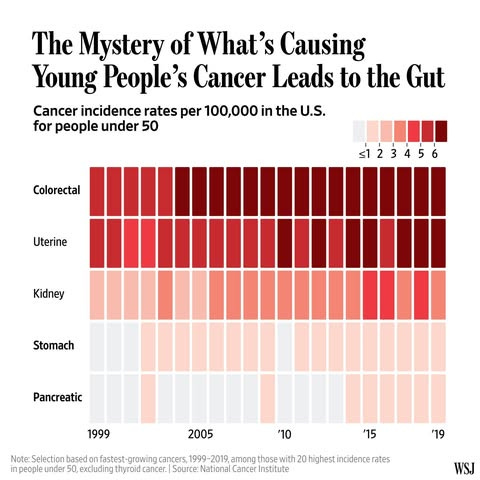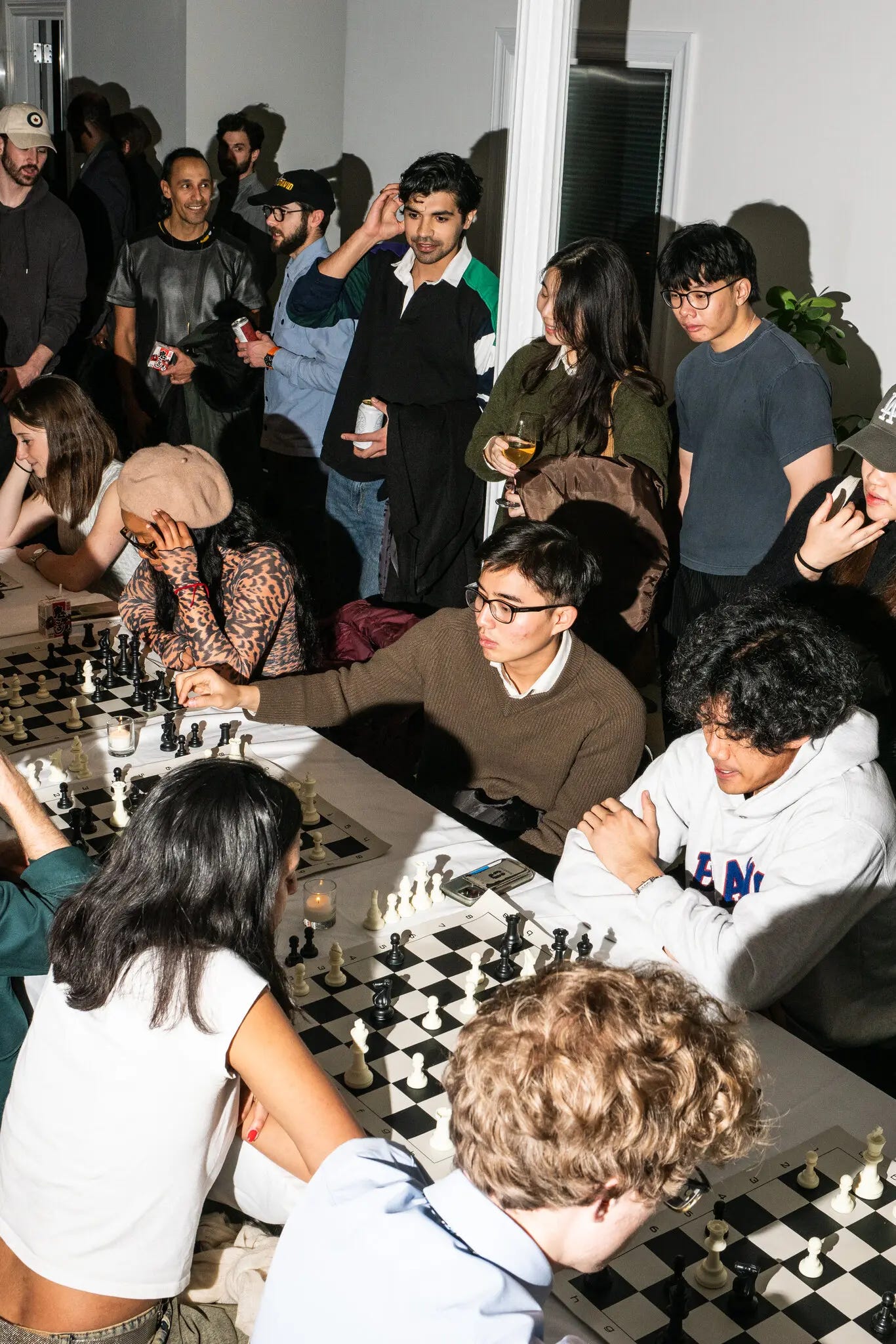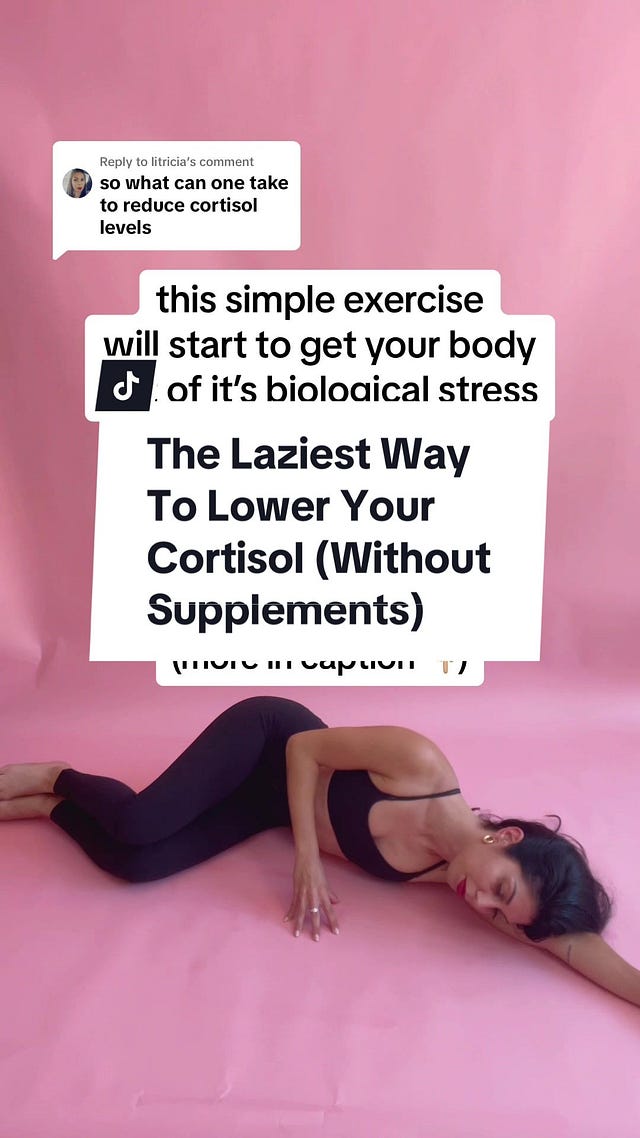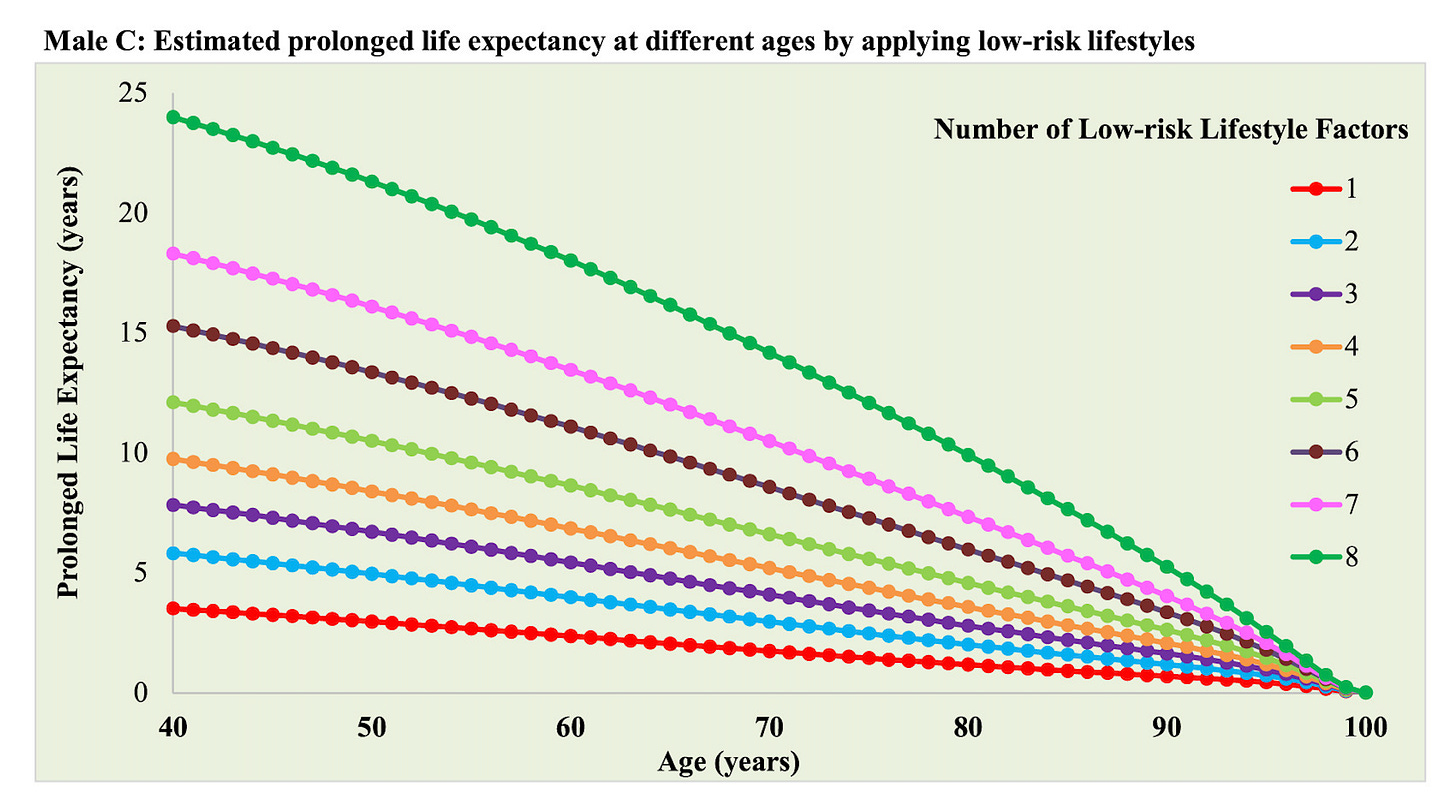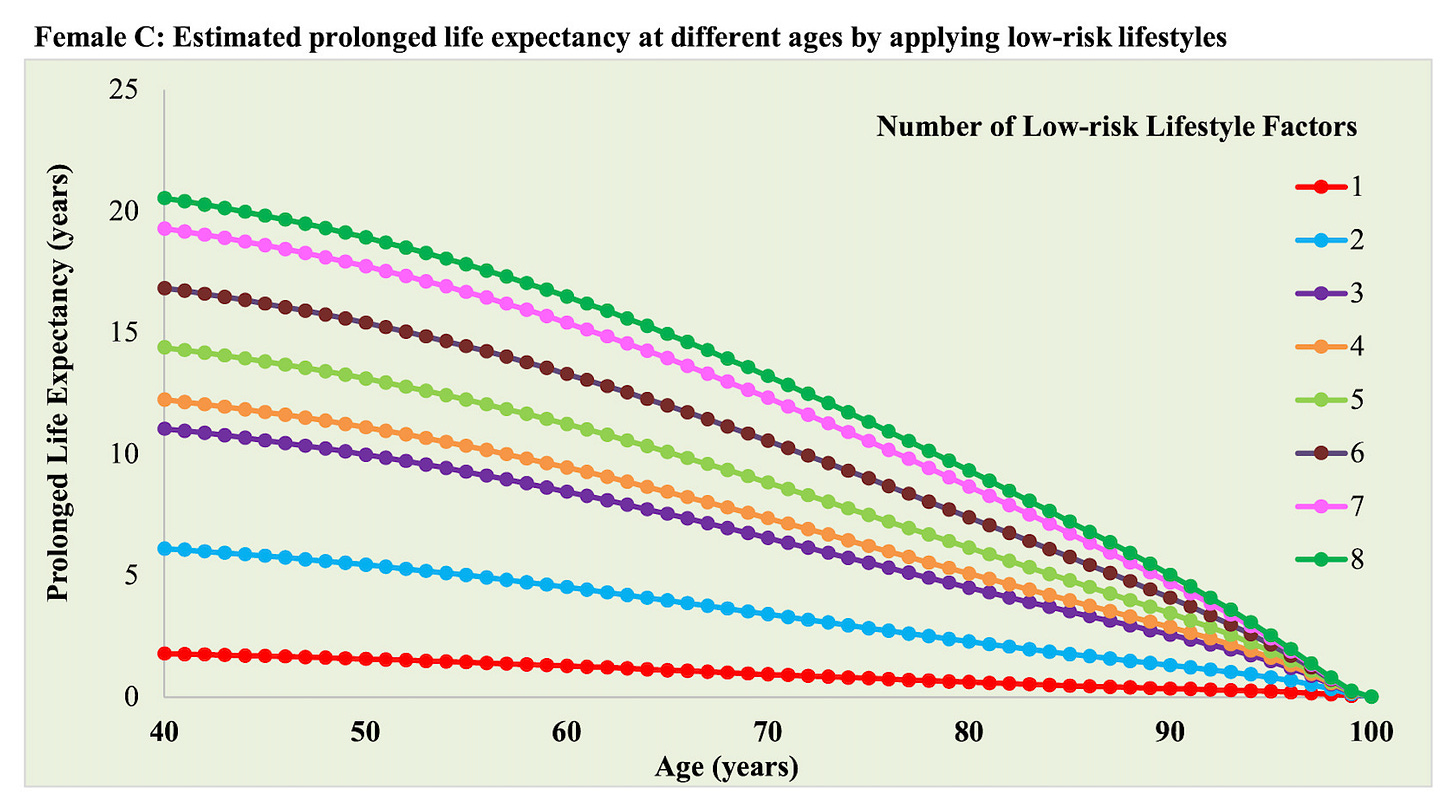20,000 vegans, vegetarians and omnivores tested: who won best gut health?
+ Rock yourself to sleep tonight.
Morning everyone. In today’s newsletter:
How screen time is ruining our gut health (and driving cancer).
Should we rock ourselves to sleep at night?
The mere 8 factors deciding over 20 years of life. (below paywall)
Vegans, vegetarians and omnivores: who is healthiest? (below paywall)
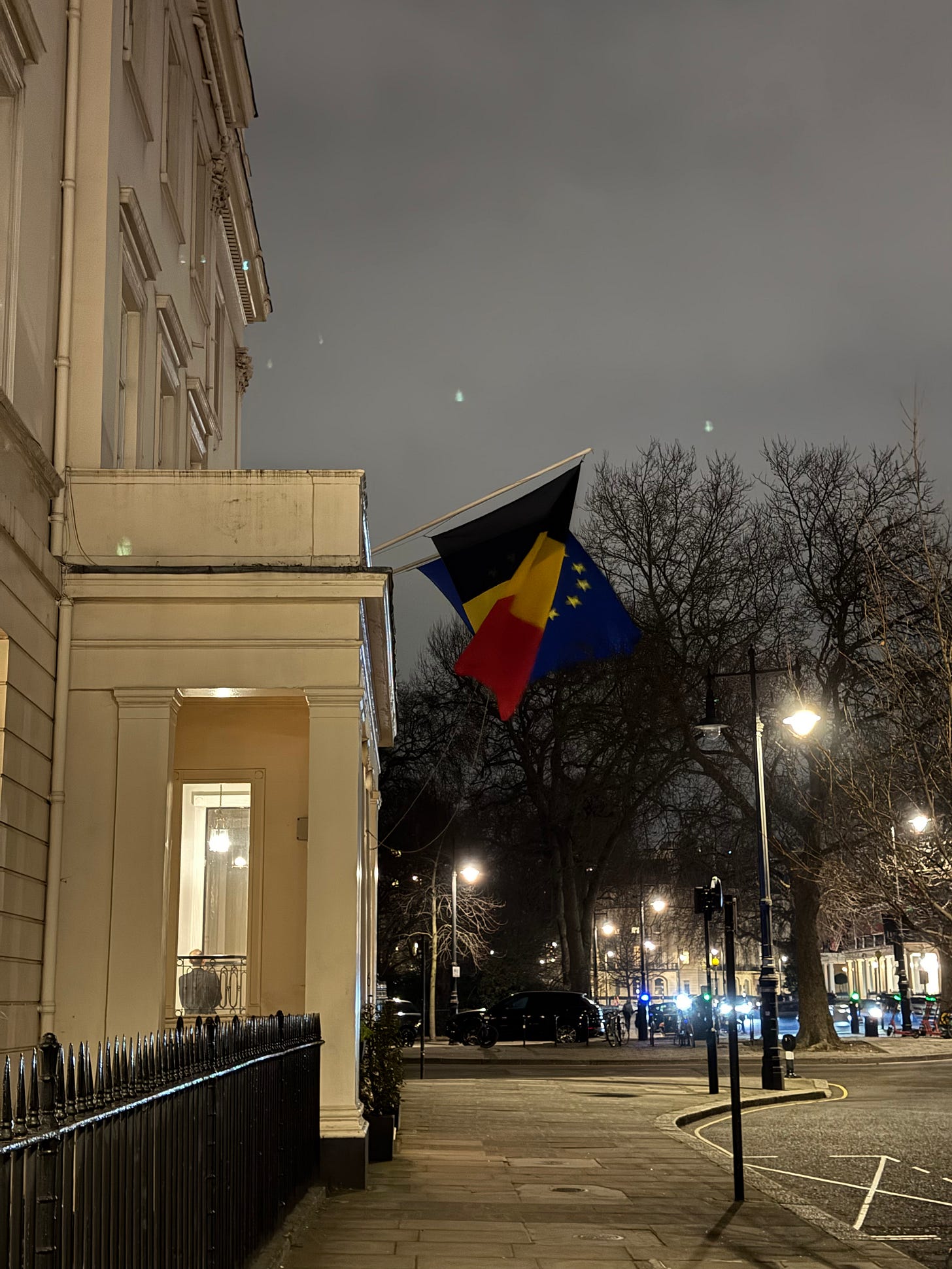
News:
I watched Here with Tom Hanks. Terrible to watch, beautiful to have seen. I expected a wholesome film reminding us of the beauty of time and ageing. Maybe something like The Terminal. But I felt awful leaving the cinema – maybe the end did not justify the means this time. Sorry Tom.
If you want to feel very sophisticated, learn reading a whiskey label.
A bad gut blamed for cancer rising in young people. What is causing those bad guts exactly? We don’t know. “Each generation born since the 1950s has had higher risk [for cancer] than the one before.”
Correlations have been found with alcohol, obesity, PFAS (forever chemicals) and – very relevant – disruption to the circadian rhythm caused by modern life. I’m sorry but this insight here is insane: time spent on electronic devices with more exposure to light, longer hours awake and later dinner times are driving colorectal cancer progression. Artificial light signals to our brain that we’re going to be having a very long day, which makes our brains suppress melatonin to avoid falling asleep. If we ever needed more motivation to protect our biological being-ness from an always-on world, let this be it.
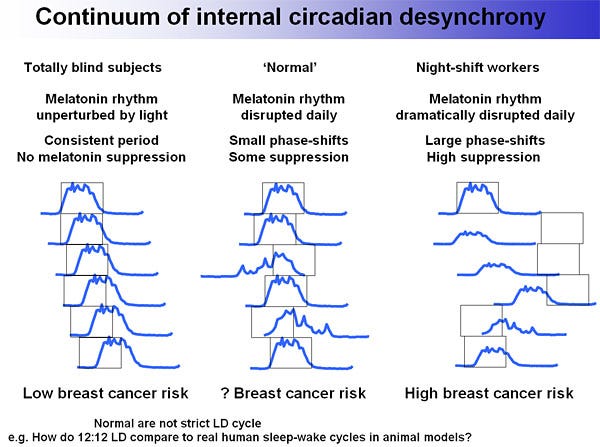
A desynchronised circadian rhythm (caused by bright lights at the wrong times, causing high melatonin suppression) correlates to high cancer risk. 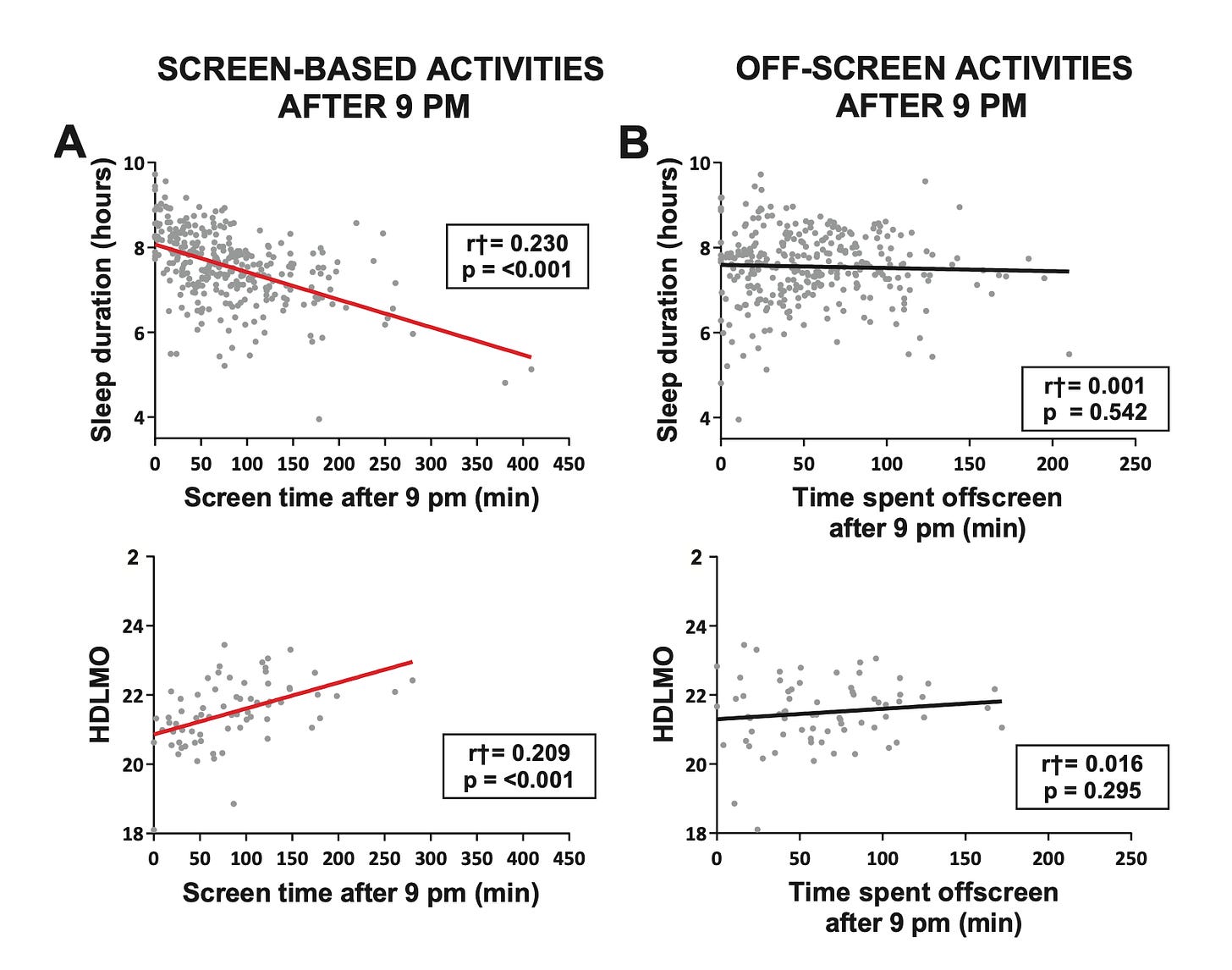
Sleep duration gets shorter as more melatonin gets suppressed with each minute spent on a screen after 9pm. This doesn’t happen with off-screen activities. (HDLMO = hour of dim light melatonin onset) If you need help decreasing screen time. Here is an article on how to replace your smartphone. Here is an article on avoiding PFAS found in sports watch bands. And here is an article to hype up offline time. And if you want a lot of offline time, read “The Extinction of Experience” by Christine Rosen.
Music could help us recover from depression. We might need that after the previous news item.
A website that unveils the degree of processing in well-known store-bought food products!
I’m swapping water for tea to live longer.
Read 6 letters from older adults written to their younger selves. It’s finance-focused, but comes down to:
save more,
prioritise physical health,
be present with/for the people you love.
“Why Rocking to Sleep Is a Matchless Sedative—and Elixir”. I love this article so much. It just works. It works for babies, it works for adult human beings. It works with others, it works with yourself. While it may feel silly at first, you just cannot stop the effect from happening. It’s a biologically programmed response. Don’t be shy…
What is more important for longevity: lifestyle or genetics? It seems like we finally have an answer. Until we’re 80 to 90 years old, scientists estimate it’s about 75% attributable to our lifestyle and environment, and 25% attributable to genetics. But as we get closer to 100 years old, that ratio switches. Then, it becomes all about the genes as centenarians often possess a rare variation that lets them avoid diseases that usually show up with age. So what does 75% lifestyle/environment consist of? I did some digging for us and found an amazing study published in 2024. A person adhering to the following 8 low-risk lifestyle factors could experience a difference as big as 20 to 25 years of life(!!!).
The 8 factors are:



